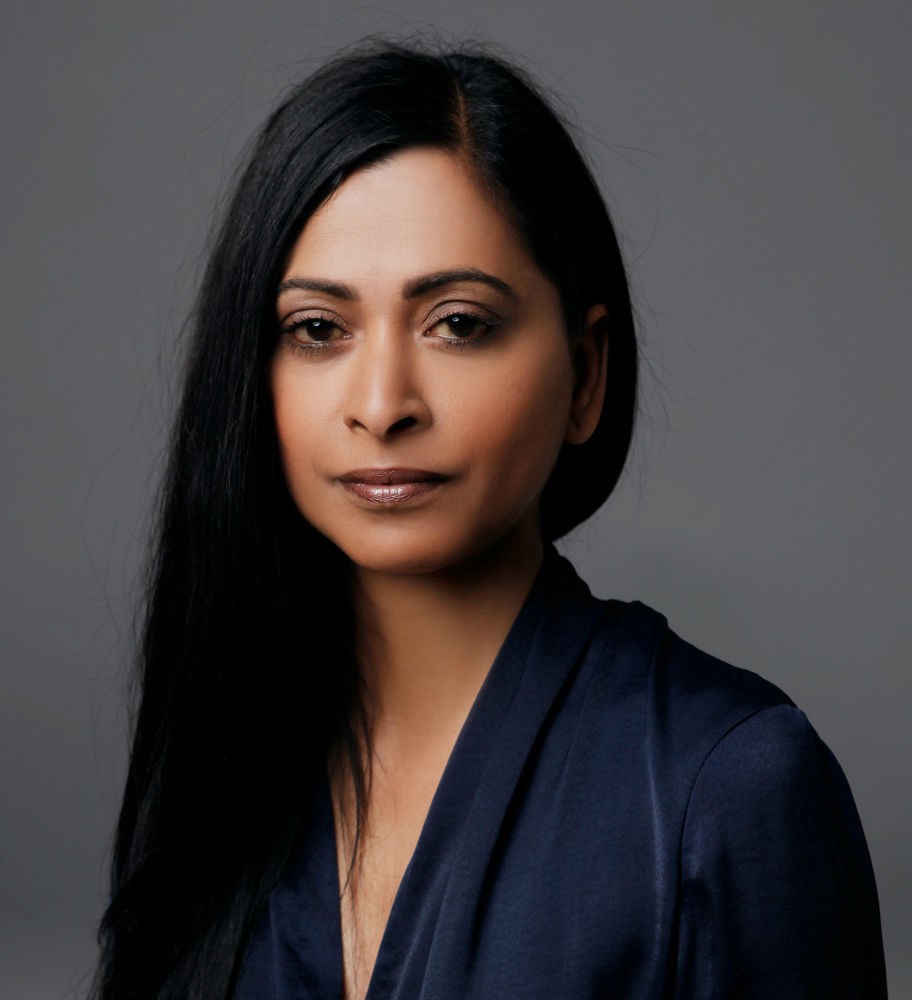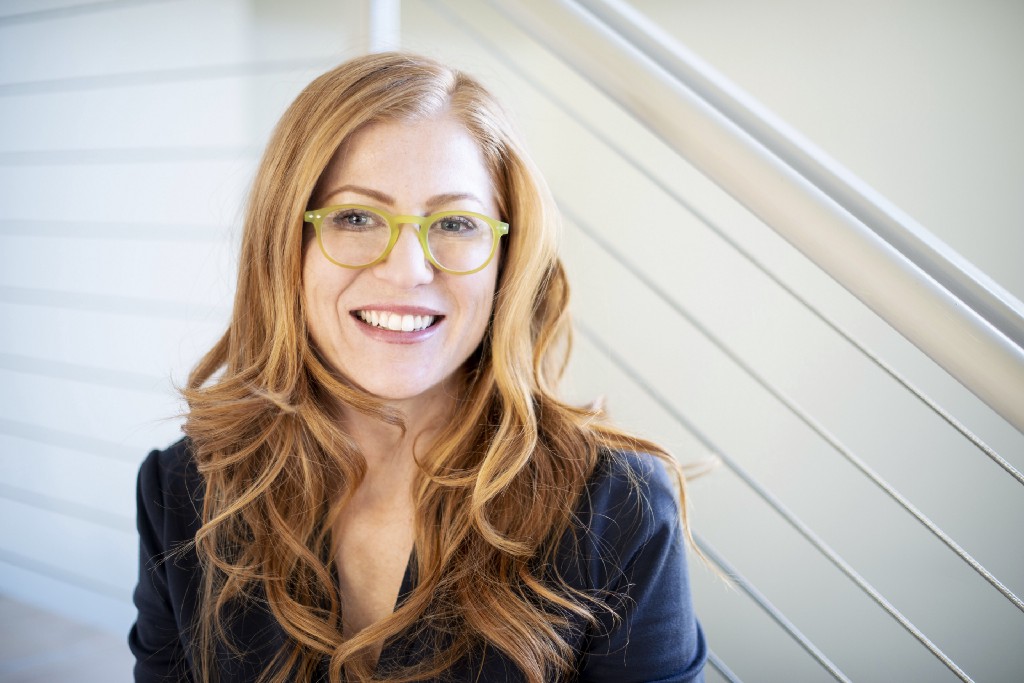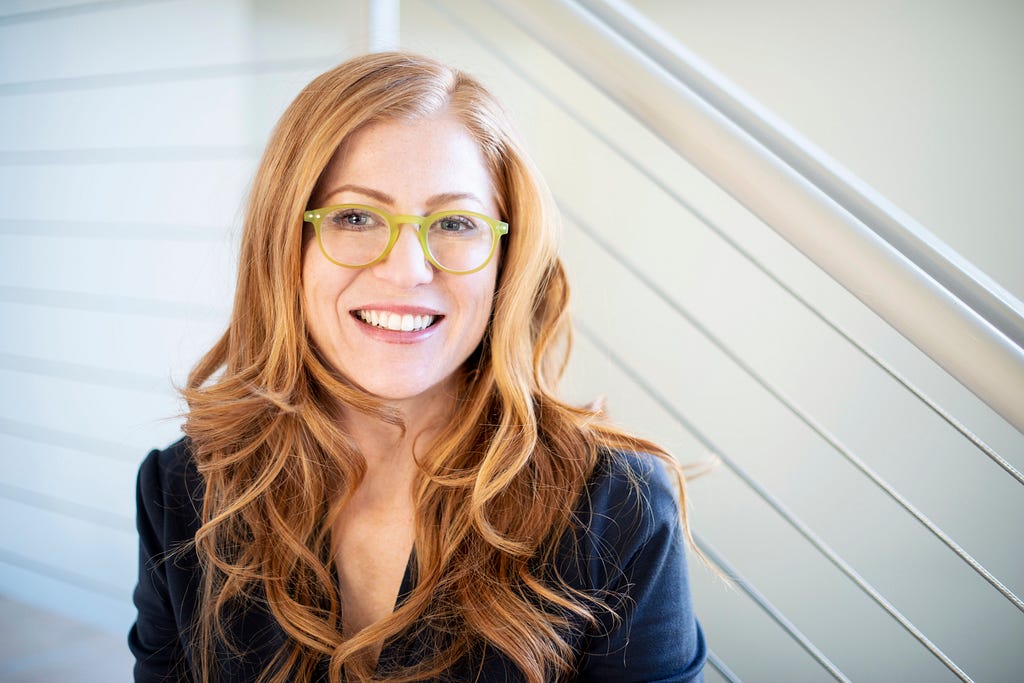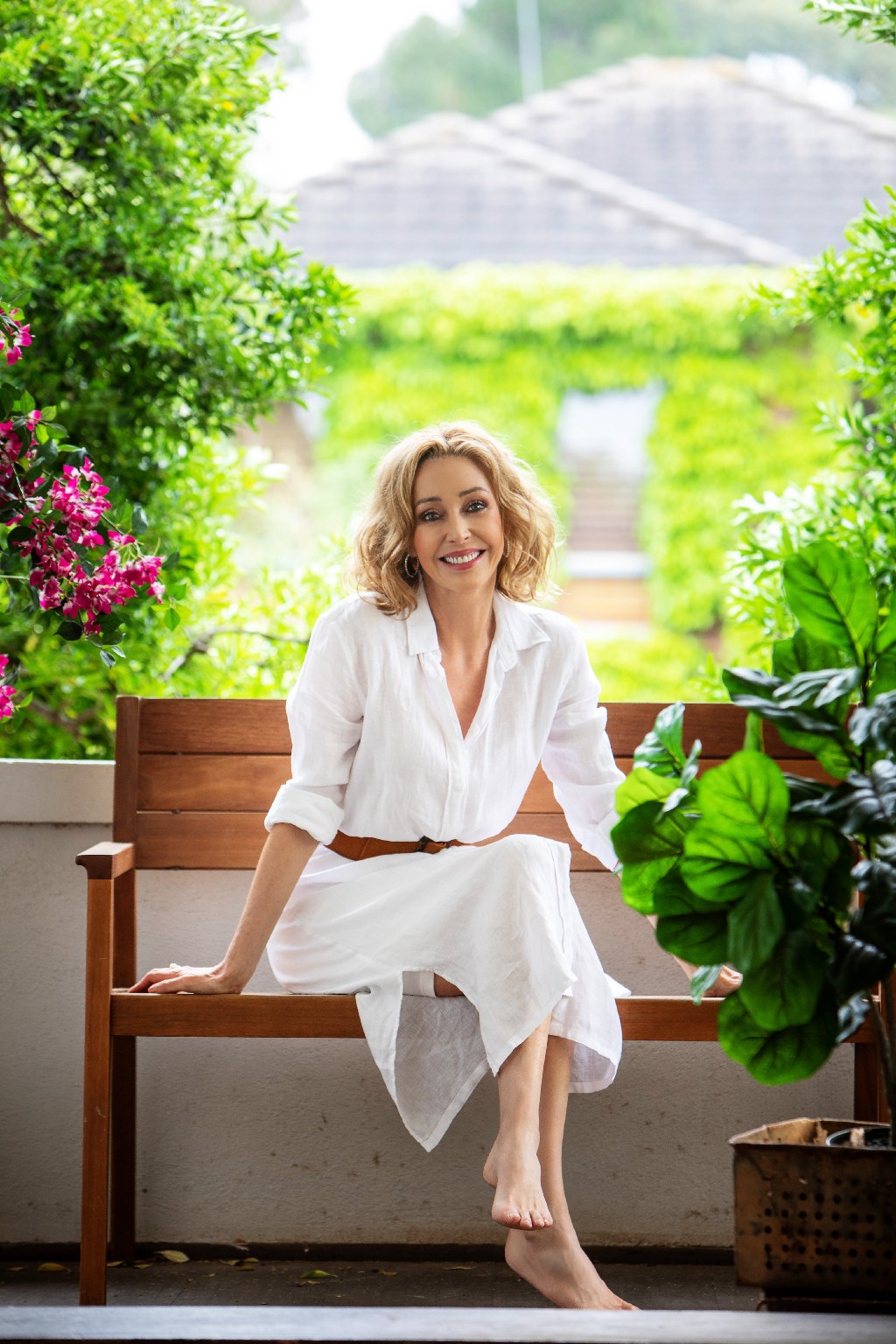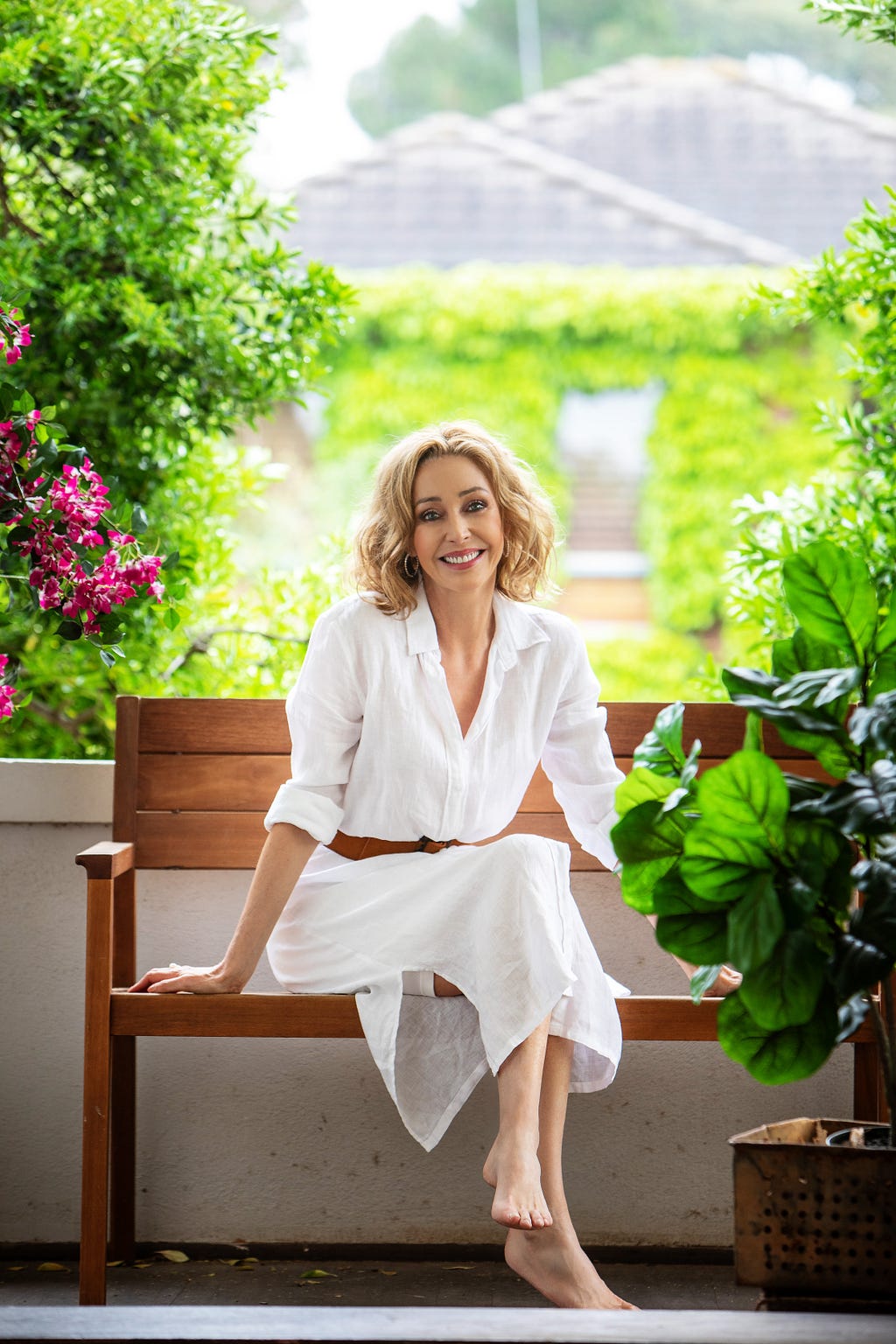Female Founders: Veera Johnson of Circulor On The Five Things You Need To Thrive and Succeed as a Woman Founder
An Interview With Candice Georgiadis
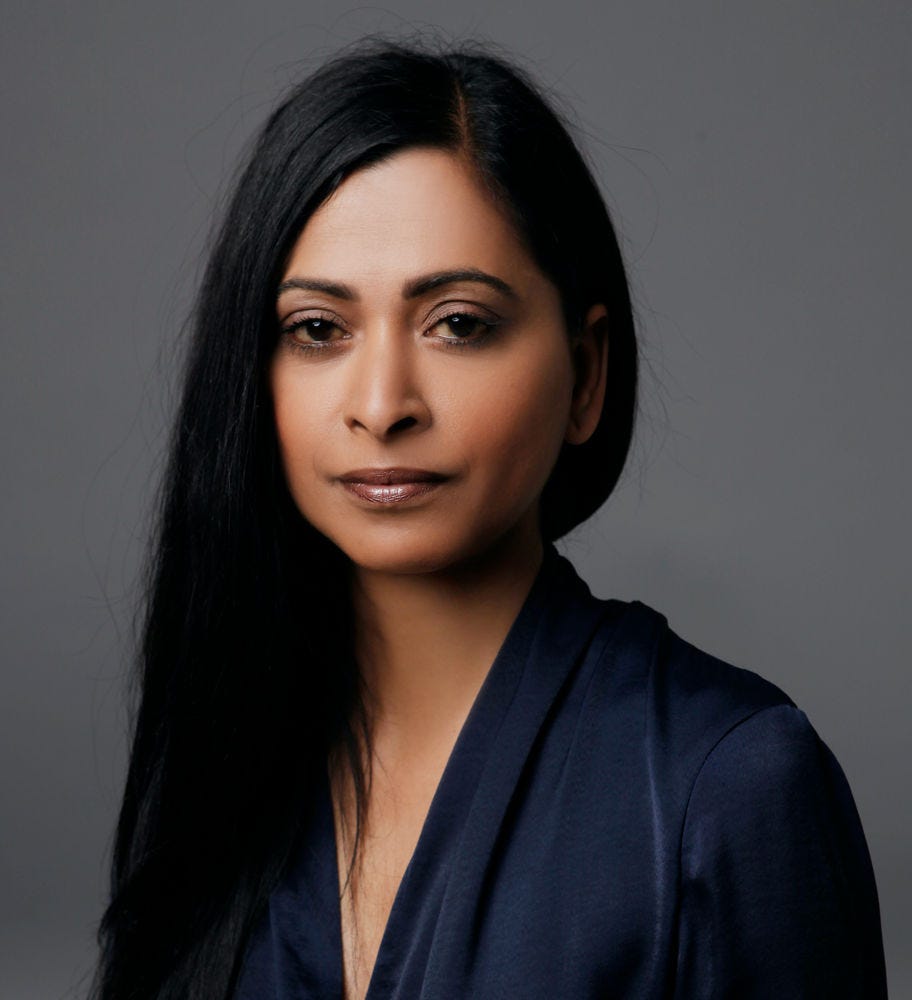
Make uncertainty your best friend. Being a founder comes with a huge bag of unknowns, and you will get thrown all sorts of curve balls. Find mentors and coaches that have walked that journey, and ask for their advice and help in dealing with these curve balls.
As a part of our series about “Why We Need More Women Founders”, I had the pleasure of interviewing Veera Johnson the Co-Founder of Circulor.
Veera has held a number of senior and executive positions in the worlds of finance, TMT and management consulting, has been named the Asian Business Woman of the Year and profiled by the FT as a technology leader. As an entrepreneur and business leader she has been instrumental in challenging and shaping the supply chain and traceability revolution.
Thank you so much for doing this with us! Before we dig in, our readers would like to get to know you a bit more. Can you tell us a bit about your “backstory”? What led you to this career path?
I have always been instilled with a sense of business and entrepreneurship from a very early age, thanks to my father, who arrived in the UK in the early 1960’s to build a future for him and his family. I started off working in a superstore and progressed over the years from working in the public sector in economic development and regeneration, through to management consulting, specializing in IT and Infrastructure. I think I truly found my calling when I was able to bring all of this experience together in order to found and build Procserve, an e-commerce business, which was successfully sold in 2015. This gave me the skills, knowledge, and competence to establishing Circulor with my co-founder. Neither of us would be here without all of our previous experiences, mistakes and knowledge learnt to make this work. Being involved in a business with a profit for purpose mission drives me to want to contribute more back to clients and colleagues.
Can you share the most interesting story that happened to you since you began leading your company?
My colleagues will laugh at me for this, but I have learnt over the course of pitching Circulor at events, to clients and stakeholders, how exciting learning and talking about a battery can be and especially the impact they can and are having on climate action!
Can you share a story about the funniest mistake you made when you were first starting? Can you tell us what lesson you learned from that?
My funniest moment was when I was helping my father set up his retail store. It might be a cliché, but he taught me the value of pricing a tin of canned beans. I was pricing up with him and he asked me if I knew how much they cost and what I could sell them for. I just assumed that I should divide the case of 12 by the cost price. How wrong was I! I was told sharply — what about the cost of transportation, the overhead costs of the premises, time that we are were spending on the business and most importantly profit! I don’t think I ever looked back from that.
None of us are able to achieve success without some help along the way. Is there a particular person who you are grateful towards who helped get you to where you are? Can you share a story about that?
Michael O’Higgins, my ex-boss at PA consulting, a mentor and now friend. He taught me how to believe in myself and my capability. I still remember the day that he encouraged me to put in a proposal for an economic development project that I had prepared and the advice /coaching he gave me was that ‘if you think you can deliver it well and within the price you have quoted, then it’s your responsibility if it works or does not work!”. Thankfully it worked and it gave me the confidence to continue to believe in my gut instinct of what is right and wrong, not just with clients, but also in building teams and so much more.
Ok, thank you for that. Let’s now jump to the primary focus of our interview. According to this EY report, only about 20 percent of funded companies have women founders. This reflects great historical progress, but it also shows that more work still has to be done to empower women to create companies. In your opinion and experience what is currently holding back women from founding companies?
Whilst there has been so much great progress over the last decade to find ways to support women founders and entrepreneurs, there is so much more that is still holding women back. Some of this is from our innate way of not acknowledging our own achievements. How many times do we see women leaders taking about their business achievements with ‘I’ instead of ‘we’?
Too often this narrative is endorsed for example with a myriad of challenges, all the way from raising funding, which in itself is a challenging process, to the lack of genuine support networks and being taken seriously. To add to the challenge of creating and growing a business, women also have the challenge of juggling basic things in life such as supporting children, family and spouses. Having a true environment of support from all of those who surround the founder are critical. This is true for male and female founders alike. It’s just unfortunate that women founders have got it tougher, the odds are stacked against us.
But to be a successful founder, and there are so many great female founder leaders, I believe that remaining true to yourself and finding your own voice are key to rising above, sometimes, your own narrative.
Can you help articulate a few things that can be done as individuals, as a society, or by the government, to help overcome those obstacles?
I genuinely believe that there is no single answer or formulae to this. Being a founder is hard anyway! But the key thing for female founders is the need for genuinely supportive networks of mentors and coaches, who have gone through or are going through the journey themselves. I would call it ‘leaders by example.’
There also has to be a mixture of different support frameworks available for women, and indeed male founders. From when you first came up with the founding idea, to setting up the business, hiring your first team, to scaling the business, there are very different challenges involved and very different needs, both for the business and its founder(s) as they both grow and evolve. These could be fellow entrepreneurs, investors, accelerators, or programs like our partner Oracle for Startups.
We also need a consistent environment in which the founders operate to be aligned. All too often political polices such as taxation, incentives and grants are not aligned with the work of local business networks and mentors and with what a business actually needs to thrive. Also fund-raising is very hard work, but the stage at which an investor is willing to invest is at odds with when a business truly needs funding — all too often we see investors being risk averse and asking for a certain amount of revenue or certain milestones to be met before they are even willing to consider the business pitch. By then the entrepreneur has already taken the risk and proven the market-fit of their solution. We need to find ways of encouraging investors to move to new models/criteria for investing.
We also need to learn to be kinder to female founders — we are women, we are proud and we are capable. First of all, though, we need to believe this ourselves.
This might be intuitive to you as a woman founder but I think it will be helpful to spell this out. Can you share a few reasons why more women should become founders?
Women are great founders and leaders. By our very nature we are supportive, enabling and team focused, which means that we have the innate skills and aptitudes required to build great foundations for successful businesses.
We are seeing so many examples of female founders behind some of the world’s biggest start-ups. Despite the evident funding gap between male and female entrepreneurs, we also see that startups founded and co-founded by women are significantly better financial investments.
What are the “myths” that you would like to dispel about being a founder? Can you explain what you mean?
One of the biggest myths is that the founder is typically a young person who has just come up with a change the world idea and has generated a mass of wealth in a short space of time! In real life the process of transforming an idea into a profitable product or service is messy and unpredictable and often requires lots of iterations and testing for market fit and pricing. Some of the more successful founders have also been in business, and had careers, and it’s this experience that has helped them to be successful.
The myth is that founders are bold risk takers. Yes, founders do take risks–by definition, that’s what entrepreneurship requires. But few successful founders take unnecessary risks, they take calculated and careful risks, they don’t blindly go into business with just an idea. They will have spent time and effort in exploring it, testing their ideas, before they make the leap.
The final myth is the successful founders are lone rangers. That’s simply not true. They might have started with the idea but they will have surrounded themselves with a team of people who can help them turn that idea into a reality. Being willing to act alone at the start isn’t the same as continuing to stand alone over time.
Is everyone cut out to be a founder? In your opinion, which specific traits increase the likelihood that a person will be a successful founder and what type of person should perhaps seek a “regular job” as an employee? Can you explain what you mean?
A desire to pursue their passion is one of the main reasons most people step into the world of entrepreneurship. This could be born out of frustrations with their existing environment, whether that be career or a gap in the market that they believe needs to filled or purely seeking financial independence and flexibility in their lives.
Whilst this might be the starting point of their decision to become an entrepreneur, to be successful they need to be adaptable. Nothing ever goes to plan in a startup, so you constantly have to adapt and refine, and you also need persistence and hard work — it not an easy journey, and it takes a lot of hard work. Finally, the most important is vision — you have to know exactly what you want and not be afraid of taking risks.
It’s this latter trait that drives the difference between people who are willing to take risks and be a successful founder and those who decide that it’s not for them and prefer the security of a regular job.
It takes a certain type of person who is bold enough to believe in their idea and vision that they are prepared to risk everything!
Ok super. Here is the main question of our interview. Based on your opinion and experience, what are the “Five Things You Need To Thrive and Succeed as a Woman Founder?” (Please share a story or example for each.)
Firstly, we need to address our ‘confidence complex.’ It’s in our nature to “internalize and personalize” our feelings, which means that we often convince ourselves of all the reasons from why we will not secure funding, or why we won’t be successful or be a leader. I’ve learnt to accept this vulnerability, recognise when it happens and then use it in a more positive way.
Second, you aren’t always going to be consistently high energy. You will have some days that you are on fire and everything goes your way and other days when you feel like you’re hitting a brick wall. When this happens, remember to take a deep breath and start the next day and press reset.
Third, make uncertainty your best friend. Being a founder comes with a huge bag of unknowns, and you will get thrown all sorts of curve balls. Find mentors and coaches that have walked that journey, and ask for their advice and help in dealing with these curveballs.
Fourth, don’t be afraid of hiring people that are more talented than you. They come with bags of experience and ideas. It might feel scary, but in the long run you will be glad that you did, and you might learn a lot from too!
Lastly, communication. The founders who are successful are great at using communication to build passion in their business, energise and motivate teams and build a brand, internally and externally.
How have you used your success to make the world a better place?
I came out of semi-retirement to co-found Circulor. The mission and vision of the business is to make the worlds’ most complex supply chains transparent and in doing so provide businesses with an understanding of their manufacturing and recycling supply chains, so that they can make empowered decisions about where they source their materials from and reduce Green House Gas emissions. Being involved in a business with such an enabling mission is really powerful, personally energizing and really can make the world a better place. There are so many touch-points that Circulor can and is having, exposing where human rights are being infringed, such as child labour, reducing carbon emissions to help deal with climate action, recycling of critical materials to their virgin state to stop the need for extraction to fuel our energy consumption needs!
You are a person of great influence. If you could inspire a movement that would bring the most amount of good for the greatest number of people, what would that be? You never know what your idea can trigger.
That’s a tough one. For me I think it has to be about sharing. My granddaughter is at pre-school, and she came home one day and started talking about ‘sharing is caring.’ Her school was teaching children to share their toys. But actually, there is a much broader truth in it. Sharing knowledge, sharing and teaching skills, sharing information and more importantly sharing success. A company is never successful as a result of one person’s efforts — it’s a team effort!
We are very blessed that some very prominent names in Business, VC funding, Sports, and Entertainment read this column. Is there a person in the world, or in the US with whom you would love to have a private breakfast or lunch with, and why? He or she might just see this if we tag them.
It has to be President Joe Biden, he has the greatest opportunity to genuinely shape the future of our planet right now.
Thank you for these fantastic insights. We greatly appreciate the time you spent on this.
Female Founders: Veera Johnson of Circulor On The Five Things You Need To Thrive and Succeed as a… was originally published in Authority Magazine on Medium, where people are continuing the conversation by highlighting and responding to this story.


